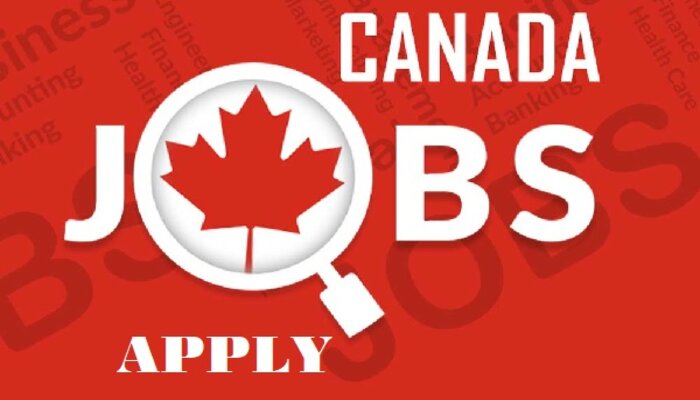
Australia is one of the most desirable destinations for job seekers worldwide, offering lucrative salaries, career growth opportunities, and an exceptional quality of life. Its strong economy, high demand for skilled professionals, and welcoming immigration policies make it an attractive choice for workers from various industries.
If you are considering working in Australia, understanding the visa requirements, job market, and best strategies for securing a well-paying position is crucial. Navigating the complexities of work permits, job applications, and settlement procedures can be challenging, but with the right information, the process becomes much more manageable.
This comprehensive guide explores everything you need to know about working in Australia, including the visa application process, job opportunities, high-paying careers, cost of living, and essential tips to maximize your earnings.
Why Work in Australia?
Australia is a top choice for professionals due to several compelling reasons.
Firstly, high salaries make it an attractive option. The country offers competitive wages across multiple industries, particularly in healthcare, engineering, and IT. Many skilled workers find their earning potential significantly higher in Australia compared to their home countries.
Secondly, excellent quality of life is another major benefit. Australia is known for its superior healthcare system, world-class education, and an enviable work-life balance. Cities such as Sydney, Melbourne, and Brisbane rank among the best places to live globally.
Moreover, the diverse job market provides a wealth of opportunities. Various industries actively seek skilled professionals, ensuring better employment chances for qualified individuals.
Additionally, a pathway to permanent residency makes it even more appealing. Many work visas provide an opportunity to transition to permanent residency, allowing workers to settle permanently and enjoy the benefits of living in Australia long-term.
Lastly, Australia boasts a multicultural society, making it easier for expatriates to integrate into the community. With a vast international workforce and a welcoming environment, newcomers quickly find a sense of belonging.
Work Visa Requirements in Australia
To work legally in Australia, obtaining the appropriate work visa is essential. The visa type depends on your skills, qualifications, and job offers. Below are the most common work visas:
1. Temporary Skill Shortage (TSS) Visa (Subclass 482)
This visa is designed for skilled workers sponsored by an Australian employer. It allows workers to stay in Australia for up to four years and can potentially lead to permanent residency.
2. Skilled Independent Visa (Subclass 189)
This is a points-tested visa for skilled workers who do not have employer sponsorship. It grants permanent residency upon approval and does not require nomination by a state or employer.
3. Skilled Nominated Visa (Subclass 190)
The Skilled Nominated Visa requires nomination by an Australian state or territory. It offers permanent residency to skilled workers who possess expertise in occupations in high demand.
4. Employer Nomination Scheme (ENS) Visa (Subclass 186)
This visa is for skilled workers nominated by an Australian employer and provides a direct route to permanent residency. It is an excellent option for those who have secured long-term employment in the country.
5. Working Holiday Visa (Subclass 417 & 462)
This visa is available for young adults (18-30 years) from eligible countries and allows short-term employment to fund travel in Australia. It is ideal for individuals looking to experience the Australian lifestyle while earning money.
Steps to Secure a Job in Australia
1. Assess Your Eligibility
Before applying for jobs, it is essential to determine whether your skills align with Australia’s Skilled Occupation List (SOL). Additionally, identifying which visa best suits your qualifications and experience is crucial for a smooth application process.
2. Prepare Your Documents
Having the right documents is crucial for job applications and visa approvals. These include:
- An updated resume following Australian standards.
- Certified copies of educational and professional qualifications.
- English proficiency test results (IELTS, PTE, or TOEFL).
- Health and character clearance certificates.
3. Find Job Opportunities
Australia has several job portals where you can explore job openings. Some of the best platforms include:
- Seek (www.seek.com.au)
- Indeed Australia (au.indeed.com)
- LinkedIn (www.linkedin.com)
- Australian Government Job Portal (www.jobs.gov.au)
- CareerOne (www.careerone.com.au)
4. Apply for Jobs & Attend Interviews
Once you identify suitable job listings, tailor your resume and cover letter for each application. It is advisable to research the company and job role before attending interviews, especially if applying from overseas.
5. Obtain a Work Visa
If you receive a job offer, your employer may sponsor your visa. You will need to submit your visa application online via the Department of Home Affairs website, pay the necessary fees, and await approval.
High-Paying Jobs in Australia
For job seekers aiming for high earnings, the following industries offer some of the highest salaries:
1. Healthcare & Medical
- Surgeons: AUD 400,000+ per year
- Anesthetists: AUD 380,000+ per year
- General Practitioners (GPs): AUD 250,000+ per year
- Dentists: AUD 150,000+ per year
2. Engineering
- Mining Engineers: AUD 150,000+ per year
- Civil Engineers: AUD 120,000+ per year
- Electrical Engineers: AUD 110,000+ per year
3. Information Technology (IT)
- Software Engineers: AUD 120,000+ per year
- Data Scientists: AUD 130,000+ per year
- Cybersecurity Experts: AUD 140,000+ per year
4. Finance & Accounting
- Investment Bankers: AUD 200,000+ per year
- Actuaries: AUD 150,000+ per year
- Chartered Accountants: AUD 120,000+ per year
5. Construction & Trades
- Project Managers: AUD 150,000+ per year
- Electricians: AUD 90,000+ per year
- Plumbers: AUD 85,000+ per year
Cost of Living in Australia
While salaries are high, the cost of living varies by city. The estimated monthly expenses are:
- Sydney & Melbourne: AUD 2,500 – AUD 4,000
- Brisbane & Perth: AUD 2,000 – AUD 3,500
- Adelaide & Hobart: AUD 1,800 – AUD 3,000
Breakdown of Costs
- Rent: AUD 1,200 – AUD 3,000 per month
- Food: AUD 400 – AUD 800 per month
- Transport: AUD 150 – AUD 300 per month
- Utilities: AUD 200 – AUD 400 per month
Tips to Increase Your Salary & Career Growth in Australia
To maximize earnings and career prospects, consider the following strategies:
- Enhance Your Skills: Certifications in high-demand fields like IT, project management, and healthcare boost employability.
- Network Professionally: Attend job fairs, connect on LinkedIn, and engage with professional associations.
- Negotiate Your Salary: Research industry standards and confidently negotiate your pay.
- Consider Regional Areas: Working in rural or regional Australia may offer higher salaries and additional visa benefits.
- Apply for Permanent Residency: PR status opens doors to better job opportunities and financial stability.
Conclusion
Working in Australia presents incredible opportunities for skilled professionals seeking high salaries and career advancement. With its thriving economy, diverse job market, and attractive immigration policies, Australia remains a top destination for global job seekers.
By understanding the visa requirements, researching the job market, and strategically planning your move, you can secure a high-paying job and enjoy a prosperous future in Australia. If you are serious about working in Australia, start preparing today by refining your job search strategies, improving your skill set, and taking steps toward securing a well-paying career Down Under.






